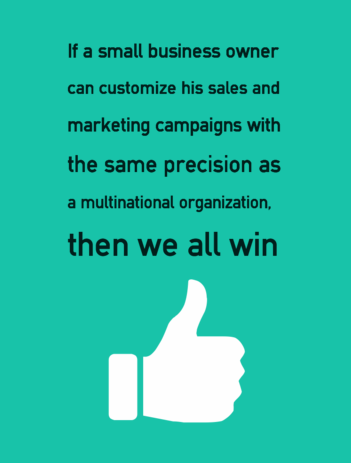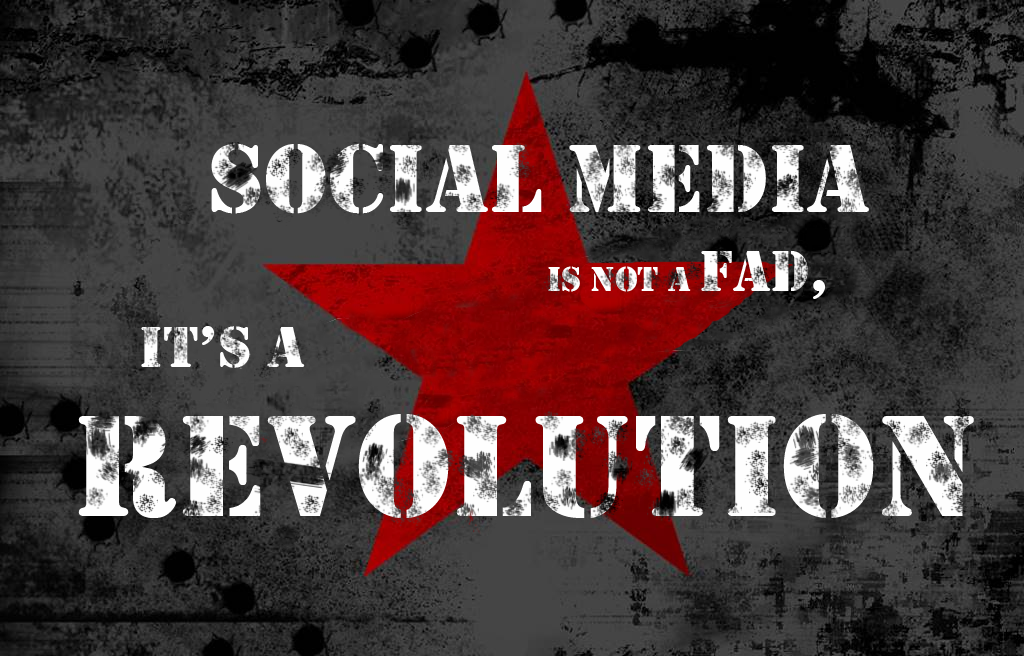The triumph of Big Data may take many forms, but it already has an impact – a large one – within the realm of social media. By having entrée to key analytics, and by making that information affordable and accessible to as diverse an audience as possible, companies and consumers can have a more insightful – and sincere – conversation about their respective brands, and products and services.
Gone is the blather that pollutes too much of social media, thereby compelling businesses to use data to their advantage. Gone, too, is the meaningless quest for likes and followers, the worthless expense of purchasing bogus accounts and fake profiles. Gone, in short, is the way companies use social media, as if a series of sentence fragments and links constitutes a dialogue or a meaningful exchange of ideas.
 Perhaps the biggest change involving this situation is cost: If an entrepreneur can retrieve the same degree of analysis, by experts, as a global corporation, if a small business owner can customize his sales and marketing campaigns with the same precision as a multinational organization, then we all win – we win by seeing, and engaging in, a more fruitful discussion of what is timely rather than committing the equivalent of cyber vandalism by posting irrelevant – and intrusive – content about nothing of any true value in particular.
Perhaps the biggest change involving this situation is cost: If an entrepreneur can retrieve the same degree of analysis, by experts, as a global corporation, if a small business owner can customize his sales and marketing campaigns with the same precision as a multinational organization, then we all win – we win by seeing, and engaging in, a more fruitful discussion of what is timely rather than committing the equivalent of cyber vandalism by posting irrelevant – and intrusive – content about nothing of any true value in particular.
I issue this statement as an expert myself and as the Founder of Ocoos.com, where I continue to democratize data for a variety of businesses and industries.
In so doing, I seek to elevate the quality of messaging between companies and their most influential customers. That fact is good news to a worldwide community of users – on Facebook and Twitter, as well as other platforms. But the even better news is what data can do for you, by way of making social media more inclusive, inviting and possibly inspiring.
Since the numbers speak for themselves, meaning, since the analytics tell us what to say and to whom to say it, we can rid social media of a lot of the junk that masquerades as announcements and promotions, not to mention the wholesale bombardment of our accounts by advertisers, middle-men and their financial enablers.
In this scenario, social media is a collection of individual conversations; it is a destination for companies to interact with consumers, answer questions, entertain ideas and suggestions, and acknowledge the importance of the very people they want to more fully understand.
Think of this situation as a gateway to more literate – and lengthy – posts about the things customers care about, a discussion about what matters most to these men and women.
I return to this emphasis on quality because we will see a real increase in standards, transforming social media from some junior staffer’s part-time task into a great communicator’s full-time responsibility.
We will see superior posts about relevant subjects, leading to a more fruitful conversation with customers who are arbiters of good taste and sound judgment.
The revolution is here.
—



